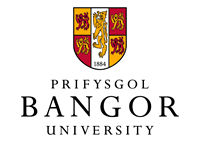Dr Christopher Staples
No more applications being accepted
Funded PhD Project (European/UK Students Only)
About the Project
We welcome applications for a fully-funded Cancer Research Wales 3-year PhD studentship based in the North West Cancer Research Institute, within the School of Medical Sciences at Bangor University.
DNA lesions or oncogene activation can impair the progress of the replication fork - a phenomenon known as replication stress. Genome instability and replication stress are hallmarks of cancer that have crucial roles in the initiation and progression of many tumour types. As such, impediments to DNA replication are a serious threat to genome integrity, and the cell responds to such barriers via the recruitment of factors that act collectively to stabilise and restart the stalled fork. Stalled forks that cannot restart can lead to DNA breaks, and therefore the co-ordination of DNA replication and DNA repair is essential for genome maintenance. Indeed, several established DNA repair proteins including BRCA1 and BRCA2 maintain genome integrity via novel roles at the replication fork that are genetically separable from their canonical roles in the repair of damaged DNA.
We have identified several novel factors with important roles in preserving fork integrity during replicative stress. The student will employ a range of novel techniques to study the biology of the replication fork in knockout cell lines lacking these factors. These techniques will include Isolation of Proteins from Nascent DNA (iPond), DNA fibre analysis, Proximity Ligation Assay (PLA) and CRISPR-mediated deletion, as well as more general techniques such as western blotting, immunoprecipitation, immunofluorescence, cloning, cell culture and RT-PCR. The student will join a supportive research environment with regular lab meetings and journal club presentations, as well as a full programme of personal and professional development available within the Doctoral School.
Conditions
The successful applicant will be a highly-motivated and organised individual with a relevant 1st Class or Upper Second-Class undergraduate degree and/or Masters qualification.
Application
For advice on application process and to apply on line click here. Informal enquiries should be directed to Dr Chris Staples at [Email Address Removed] and should include a CV and Cover Letter.
Start Date
Negotiable
Funding Notes
Funding
Includes fully paid tuition fees, a consumables budget of approximately £15,000 p.a. and a tax-free incremental stipend of £14,917 p.a. increasing to £15,672 by Year 3.

 Continue with Facebook
Continue with Facebook

